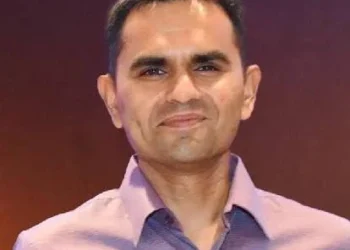ED questions various well-known TV actors in OctaFX money laundering case
On Wednesday, the Enforcement Directorate (ED) questioned many well-known TV and reality show stars, including Krystle Dsouza and Karan Wahi, in connection with a money laundering investigation against online forex trading platform OctaFX.
The agency invited actors Krystle Dsouza, Karan Wahi, and Nia Sharma to promote the platform. Nia Sharma, who starred on Big Boss, failed to appear before the ED.
Earlier this year, the ED discovered that, despite lacking legal clearance, the trade portal was operating in India. Following an inquiry, the agency discovered that the platform was defrauding investors by claiming to invest in currency and earning more than Rs 500 crore in earnings.
Also read: “Jawan in Japan”: Shahrukh Khan’s action drama set to release in Japan
In April, the ED conducted search operations in Mumbai, Chennai, Kolkata, and Delhi as part of its investigation. The Enforcement Directorate has blocked Rs 2.7 crore in bank money and confiscated many illicit papers and digital devices.
Celebrities summoned for promoting forex trading platform
The ED investigation began from a FIR filed by the Shivaji Nagar Police Station in Pune against multiple individuals for scamming investors by promising large returns through FX trading.
According to the ED, the OctaFx online trading app and website operated in India in collaboration with OctaFX India Private Limited. The OCTAFX app and website are not authorized by the RBI to conduct forex trading.
The platform was heavily marketed on social networking sites, and they used referral-based incentive structures to attract users to their platforms.
The inquiry revealed that several accounts from various Indian banks were displayed to investors on the app and website to collect funds under the premise of facilitating forex trading.
Probe reveals OctaFx manipulated trade activities
The probe also revealed that OctaFx manipulated trade activities and information shown on its platform resulted in net loss to the traders.
After scamming investors, the monies were transferred to several e-wallet accounts or dummy bank accounts. The company made more than Rs 500 crore in profit from India.
A portion of these money were layered through a web of sophisticated transactions using shell organizations and transmitted abroad to connected entities disguised as bogus freight services, service imports, and so on.
Based on the inquiry and proceeds of crime identified thus far, the ED has attached assets worth Rs 35 crore in the form of cryptocurrencies, bank balances, and gold coins.














